1/04/2020
Messiah the Dajjal Antichrist
المسيخ الدجال براعية الموساد الإسرائيلي، مسخ من كل النصوص الدينية ،استغلال حاجة الشعوب البائسة فى العالم ..
عندما تكون البشرية مستعدة لتصديق اى شئ يظهر مسلسل المسيح المخلص فى بداية عام ٢٠٢٠ ......
تشوية المسلمين اكثر و العرب (كل الممثلين ليسوا عرب)
الهدف من المسلسل خلط الأمر على المسلمين والتشويش على معتقداتهم والتشكيك فيها، حيث يظهر المسيح الدجال على أنه المخلص والمنقذ للاجئين من الحروب بالدول الإسلامية إلى بر الأمان في إسرائيل، في حين يكون "تنظيم الدولة" هو عدو المسيح الذي يحارب رسالته، على حد وصفهم
كما أن الأردن الذي صورت على أراضيه أجزاء كثيرة من المسلسل قد طالب بوقف عرضه أو حتى عدم عرضه جزئيا على منصة الشبكة بالمملكة اعتراضا على أحداثه، وطبقا لجريدة مترو الإنجليزية فإن الأردن وافق على التصوير في البداية لأن السيناريو والخطوط العريضة لم تكن تخالف القوانين، وهو الأمر الذي اتضح أنه غير صحيح لاحقا.
تبدأ الحلقة الأولى من المسلسل من سوريا في الوقت الحالي بمشهد أم مع ابنها "جبريل" يسألها ما إذا كان الرب يحبه، واذا كان يحبه لماذا أخذ والده، لتقول له أن الله يخبأ له خطة أخرى، ثم تقفز الأحداث لمستقبل الطفل - الذي ستكون لديه قصة اخرى لن نخوض فيها في هذه المراجعة - حيث قتلت والدته ايضا اثناء حصار على مدينة دمشق بسوريا من قبل تنظيم داعش على الأهالي، وهنا يظهر شخص يتلو آيات قرآنية بخطاب يحشد فيه الناس ويقول أنهم اكثر الشعوب التي عانت على الأرض وتحتاج أن تعود إلى كلام الله، وأثناء ذلك تهب عاصفة رملية على المدينة تستمر ثلاثين يوما، ويبقى هذا الشخص واقفا في مكانه دون أكل وشرب مستمر بدعوة الناس في وسط العاصفة، فتنتهي العاصفة بعدما تتسبب في فك الحصار وتراجع قوات داعش.
ثم يبدأ الفتى "جبريل" والأهالي باتباع هذا الرجل الذي يقودهم عبر الصحراء إلى فلسطين، لتقبض عليه القوات الإسرائيلية على الحدود تنخضعه للتحقيق، وتمنع دخول أتباعه، ومن هنا تبدأ قصة المسيح أو "المخلص".
وفي الجانب الأخر، تبدا شكوك لدى الإستخبارات الامريكية حول هذا الشخص ويتساءلون عن جنسيته وطائفته وكذا غايته، واذا كان شيعيا إيرانيا كما توحي لهجته، و كيف له ان يقود مجموعة من السنة عبر الصحراء، فيتم تجنيد محققة شابة اسمها "إيفا" للتحقيق في القضية، وهنا يتجلى أول رد فعل متوقع في وقتنا الحاضر، في حال ظهر رجل مماثل.
بعد إخضاع المسيح للتحقيق واحتجازه من طرف إسرائيل، تحدث المفاجاة حيث يختفي من الغرفة حيث كان محتجزا بشكل غامض وسط ذهول الشرطة الإسرائيلية، لكنه سرعان ما سيظهر في مدينة القدس وتحديدا أمام مسجد قبة الصخر، حيث تحدث معجزة أخرى حينما يصاب طفل برصاص القواة الإسرائيلية فيقوم المسيح بشفائه واخراج الرصاصة من بطنه بلمسة يد فقط، وسط ذهول الناس، في مشهد يحيل مباشرة إلى شخصية "يسوع المسيح"، قبل أن يختفي عن الأنظار، ثم يظهر فجاة في بلدة بولاية تكساس بأمريكا وقت حدوث إعصار دمر البلدة كاملة عدا الكنيسة التي يديرها قس من البلدة سيكون أول من يتبع هذا المسيح بعد مشاهدته للمخلص وسط الاعصار في وقت كان هو ينجو بنفسه وأهالي البلدة من الاعصار. و شخصية القس لم تظهر هنا عبثا بل كان الغرض منها تمرير رسالة اخرى من رسائل المسلسل الكثيرة حول قضية "تجار الدين" الذين يحاولون التحدث باسم الرب و يقومون باستغلال إيمان الناس لتحقيق مصالحهم الشخصية، ولو ان هذا الطرح لم يظهر بشكل ملموس، لكن يمكن فهمه من خلال الكثير من المشاهد.
بعد هذه الحادثة يتم احجتاز المسيح من قبل الشرطة الامريكية بتهمة دخول الاراضي الامريكية بدون جواز سفر، وهنا يعين القس محامية للدفاع عن المخلص باعتباره لاجئا من سوريا يحق له الحصول على الاقامة في امريكا. فتبدأ هنا معركة قانونية وقضائية وكذا سياسية بين مؤيد ومعارض لقانون الهجرة واللاجئين، لكن في النهاية تنتصر العدالة القضائية فيتم منح المخلص حق اللجوء، وهنا ايضا تتجلى احدى رسائل المسلسل حول العدالة الأمريكية والنظام القضائي المستقل عن كل تأثير، وهناك مشاهد تحيل إلى هذا الطرح، كمشهد اتصال مستشار الرئيس الامريكي بقاضي ولاية تيكساس لمحاولة التاثير عليه.
.......
Al-Masih ad-Dajjal (Arabic: المسيح الدجّال Al-Masīḥ ad-Dajjāl, "the false messiah", or "the deceiver") is an evil figure in Islamic eschatology. He is to appear, pretending to be al-Masih (i.e. the Messiah), before Yawm al-Qiyamah (the Day of Resurrection).
the Messiah Netflix original series follows CIA officer Eva Geller as she uncovers information about a man who’s gaining attention all over the world because some believe him to be the Messiah. As Eva digs deeper into the origins of Al-Masih and her sole focus becomes determining whether he’s really a divine entity or a con man, his followers claim him to be a miracle worker......
1/01/2020
11/30/2019
the irishman 2019 Netflix
5/16/2018
Ramadan Kareem 1439
To all the Muslims around the globe, Happy Ramadan or as we say in Egypt “Ramadan Kareem”.
4/12/2018
The END Of FACEBOOK
Congress questioned Mark Zuckerberg for 10 hours today. Here's some of the questions they threw at him
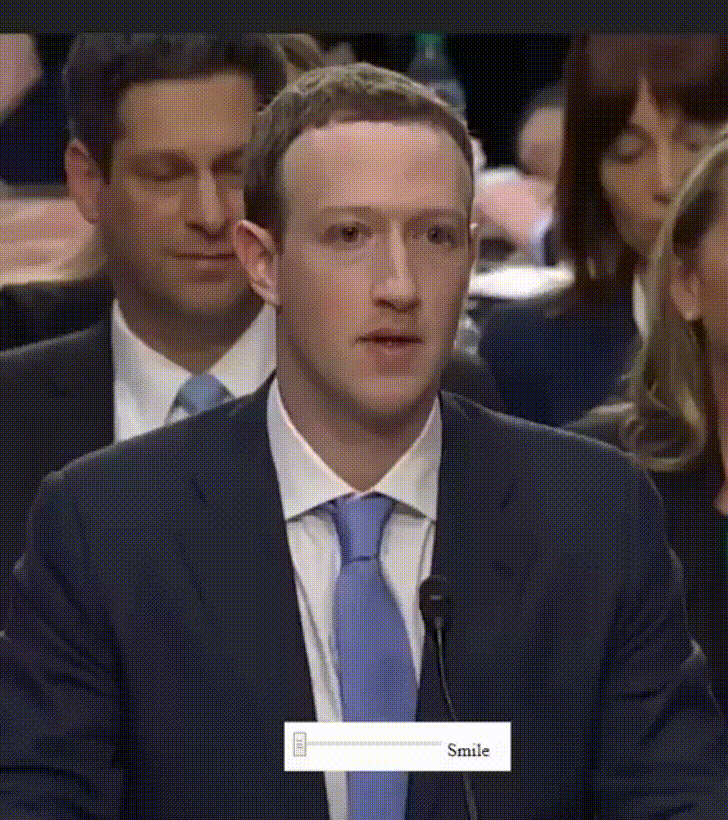
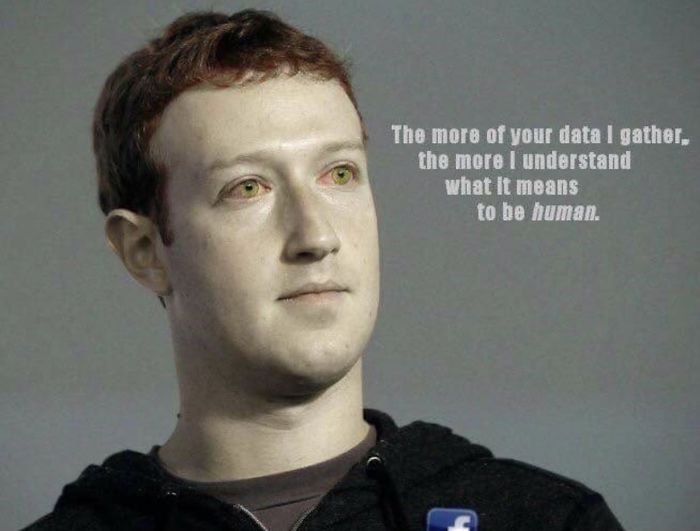
11/21/2017
When food is used as a weapon In Yemen
This month Saudi Arabia tightened a stranglehold on the neighboring
country of Yemen and 7 million people face starvation. The Saudi
blockade is an escalation in Yemen's civil war. The United Nations says
the war has now become a "man-made catastrophe." You've seen very little
of this because the Saudis prevent reporters from reaching the war
zone. Recently, we were ordered off a ship headed to Yemen. Days later
the Saudis gave us permission to fly there but, after our equipment was
loaded and our boarding passes issued, the Saudis closed the airspace so
the plane couldn't take off. Even so, we have managed to get pictures out of Yemen
to show you what the Saudi government does not want you to see. This
will be hard to watch, but 27 million people in Yemen pray you will not
turn away.
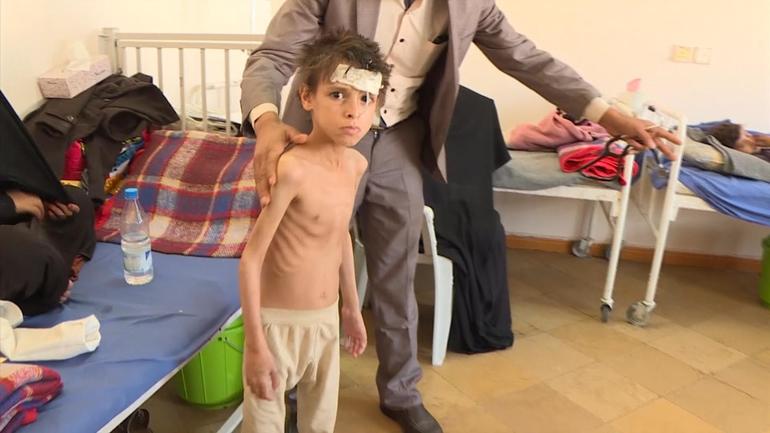
David Beasley runs the World Food Programme, the U.N.'s emergency first responder to prevent famine.
David Beasley: It's just desperation and death. It is as bad as it gets. I don't know if I've ever seen a movie this bad.
Scott Pelley: We were headed into Yemen with the World Food Programme, the Saudis gave us permission to come, and then when we arrived they wouldn't let us into the country. What do you think they didn't want us to see?
David Beasley: I don't understand why they won't allow the world to see what's taking place. Because I think if the world sees the tragedy of this human sufferin', number one, the world will step up and provide the support financially for innocent children to eat. But when you get on the ground and see what I see, you see is chaos, is starvation, is hunger, and it's unnecessary conflict strictly man-made. All parties involved in this conflict have their hands guilty, the hands are dirty. All parties.
"We're on the brink of famine. If we don't receive the monies that we need in the next few months, I would say 125,000 little girls and boys will die."
In essence, the fight is between the two main branches of Islam. The Shia branch occupies much of the West, the Sunnis most of the South and East. Saudi Arabia, leader of the Sunni world, began airstrikes against Shia rebels, more than two years ago. The rebels, who are known as Houthis, are supported by Saudi Arabia's arch enemy, Iran, the leader of the Shia world.Houthi rebels have plenty of blood on their hands, including the deaths of 1,000 civilians. But the U.N. says the Saudi coalition has killed more than 3,000 civilians; bombing schools, hospitals and Al Kubra hall, scene of a funeral last year. 132 Civilians were killed, nearly 700 wounded. Still, the deadliest weapon in Yemen is a blockade holding up food, fuel and medical aid.
David Beasley: We can't get our ships in. They get blocked
Scott Pelley: Who blocks the ports?
David Beasley: The Saudi coalition.
David Beasley told us the Saudis bombed the cranes that unload ships. The U.S. sent replacement cranes. But the Saudis won't let them in.
David Beasley: We ask any, any parties engaged in this conflict to respect humanitarian law, respect the rights of innocent people and give us the access that we need to provide the help that's needed.
Scott Pelley: It sounds like the Saudis are using starvation as a weapon.
David Beasley: I don't think there's any question the Saudi-led coalition, along with the Houthis and all of those involved, are using food as a weapon of war. And it's disgraceful.
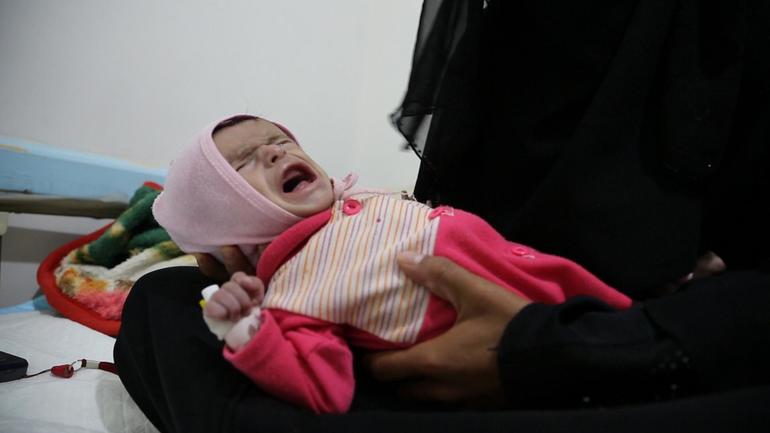
David Beasley: We're on the brink of famine. If we don't receive the monies that we need in the next few months, I would say 125,000 little girls and boys will die. We've been able to avert famine, but we know three things that are happenin'. We know that people are dying. We know that people are wasting. And we know that children are stunting. We have a stunting rate in Yemen now at almost 50 percent. That means they're smaller, the brains are smaller, the body's smaller because they're not getting the food or the nutrition they need.
The World Food Programme's Stephen Anderson is trying to move millions of pounds of food to Yemen from an African port in Djibouti.
Stephen Anderson: The World Food Programme is mobilizing food for seven million people. Now what that looks like is a 110-pound bag of wheat flour. We're aiming to provide two million of those every month to the people of Yemen.
Scott Pelley: How long can you keep that up?
Stephen Anderson: Well, we're desperately praying for peace. Because that's the only sustainable way of really rebuilding the situation our stated objective is to try to prevent a famine from occurring.
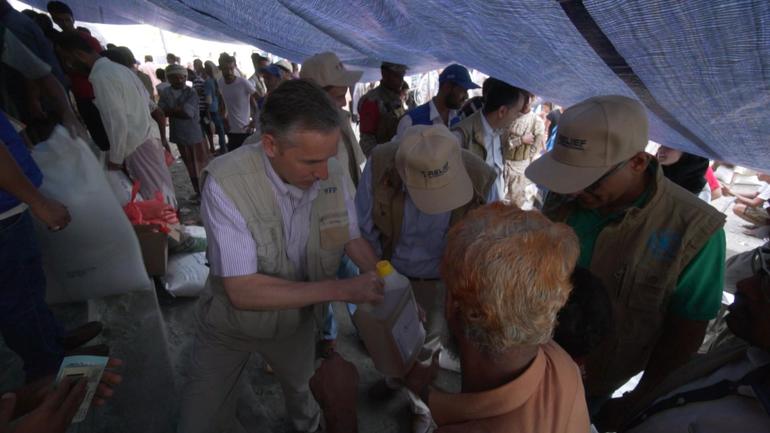
Nevio Zagaria heads the World Health Organization's emergency response.
Scott Pelley: What do you have to have to stop the epidemic?
Nevio Zagaria: We should have peace. This is what we need to stop this epidemic. So we cannot solve the problem of cholera if we do not have a proper safe water supply, if we do not have proper sanitation. If we do not have the sewage treatment plant in the main town functioning and stop because it runs out of fuel as it happened at the beginning of this epidemic in the north of Sana'a for three or four months.
Scott Pelley: The main sewage plant in Sana'a ran out of fuel and didn't run for three or four months?
Nevio Zagaria: Yes. So 3 million people, huh?
About two million Yemenis have been forced from their homes by the war and there's been a big exodus of refugees that the world doesn't know very much about. Many of them have come 25 miles across the Red Sea to a refugee camp in the African nation of Djibouti. It is a testament to how bad things are in Yemen that the refugees believe that this place is so much better.
We've seen a few refugee camps in our time but this may be the most desolate with a drought of life and flood of sun. One worker told us we were smart to come in fall when it cooled off to 110.
Ali Shafick: Unfortunately 28 months.
Ali Shafick was once an architect in the Yemeni capital. His home was destroyed. He's alone here. And his despair was almost like madness.
Ali Shafick: To be jobless in this camp is very sad. The time is going slowly, very slowly.
Scott Pelley: The heat must be unbearable.
Ali Shafick: Heat? Yes, boiling. Starting from June, July and August. Three months. You cannot live, you cannot live here, three months. It's impossible to live.
Scott Pelley: And yet you do.
Ali Shafick: I have to be patient. I have to be patient.
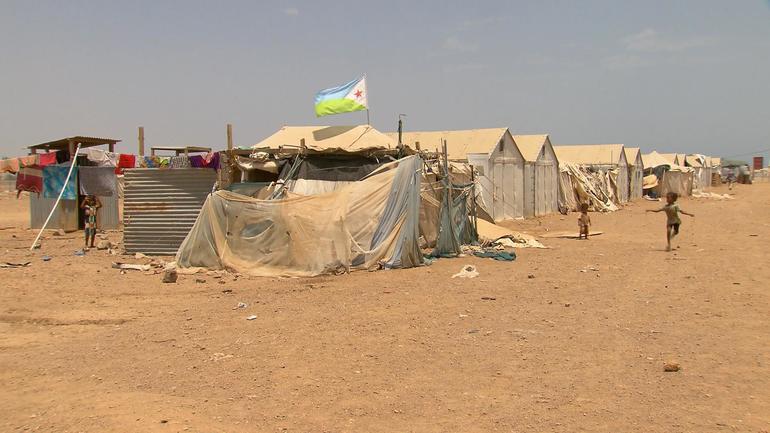
The planes would fly above us and fire rockets and missiles she told us. At night there was no sleep, they were holding the young ones. She said that her older son was saying 'we are going to die.' She told us we saw people die right in front of us.
Scott Pelley: A little while ago we heard a rumble from the direction of Yemen. That's the bombing, isn't it?
Yes, her husband said, it's near.
Scott Pelley: What do you think when you hear that?
Strong fear, she said. She said the terror is still inside us from the rockets, missiles and planes.
Ayman Gharaibeh runs Yemeni refugee relief for the U.N..
Scott Pelley: What lies ahead for these people, given where we are today?
Ayman Gharaibeh: Remember, the conflict is going into a third year, some people has been displaced for literally three years or going into their third year. I honestly do not see any silver lining anywhere on the horizon that this is gonna end soon. And I'm afraid the humanitarian situation will continue to deteriorate. And we would go from a displacement to a famine, as happened, to cholera, and God knows what's next.
"All the children are gonna be dead. It's terrible."
The Saudi intervention in Yemen began with the rise of 32-year-old Crown Prince Mohammed bin Salman, he's the son of the king and he's the defense minister. Salman is quickly reforming the kingdom's fundamentalist society. Recently, he lifted the ban on women drivers. This month, he arrested 200 Saudis including princes and media owners. He says it's a crackdown on corruption. His critics believe he's silencing his rivals. Salman's campaign in Yemen has now landed Saudi Arabia, for the first time, on the U.N.'s blacklist of nations that disregard the safety of children in war.The Saudis have pledged $8 billion in humanitarian aid for Yemen, but they've delivered very little of that. The head of the Saudi humanitarian agency says that its aid to Yemen is, quote, "way beyond any damage caused by any attacks."
David Beasley: Well we met with officials on all sides. They said all the right things. And we come back, everything that they agreed to on visas and access, so that we can get the equipment we need in, so we can deliver the food where we need to deliver it, and the technology and the health product -- you know -- terrible. The conditions are deteriorating in an unprecedented way and none of the commitments that were made, by any and all sides, have been fulfilled.
Scott Pelley: What future do you see for Yemen?
David Beasley: I don't see a light at the end of this tunnel. There's gotta be a big change. As the World Food Program, I've got my mandate to feed people. But also as a U.N. leader, I call upon the leaders of the world to bring the pressure to bear whatever's necessary to get the Saudi-led coalition, the Houthis and all involved to the table and end this thing. You keep goin' like you're goin', there's not gonna be anybody left. All the children are gonna be dead. It's terrible.
Produced by Nicole Young and Katie Kerbstat
60 Minutes, barred from Yemen,still got the footage
https://www.cbsnews.com/news/60-minutes-barred-from-yemen-still-got-the-footage/
11/20/2017
Ben Tzion who posted pictures From HOLY Medin in NEW Saudi Arabia
Ben Tzion blogger who posted pictures from Medina.
saying it's proof of normalization between Israel and Saudi
blogger who posted pictures from Medina, saying it's proof of normalization between Israel and Saudihttps://www.facebook.com/tzionben
http://www.jewishpress.com/author/ben-tzionspitz/
https://www.trendsmap.com/analytics?q=%23%D8%B5%D9%87%D9%8A%D9%88%D9%86%D9%8A_%D8%A8%D8%A7%D9%84%D8%AD%D8%B1%D9%85_%D8%A7%D9%84%D9%86%D8%A8%D9%88%D9%8A%20&hours=24&bb=-31.354,-57.656,33.870,97.207
https://arabic.rt.com/middle_east/911098-%D9%85%D8%AF%D9%88%D9%86-%D8%A5%D8%B3%D8%B1%D8%A7%D8%A6%D9%8A%D9%84%D9%8A-%D9%85%D8%B4%D9%87%D9%88%D8%B1-%D9%8A%D9%86%D8%B4%D8%B1-%D8%B5%D9%88%D8%B1%D8%A7-%D9%84%D8%B2%D9%8A%D8%A7%D8%B1%D8%AA%D9%87-%D8%A7%D9%84%D8%AD%D8%B1%D9%85-%D8%A7%D9%84%D9%86%D8%A8%D9%88%D9%8A/
UPDATE 11/29/1017
-----------------------------------
A post shared by Ben Tzion (@ben.tzion) on
A post shared by Ben Tzion (@ben.tzion) on
A post shared by Ben Tzion (@ben.tzion) on
A post shared by Ben Tzion (@ben.tzion) on
A post shared by Ben Tzion (@ben.tzion) on
Form FB PIC
--------------------------------
11/18/2017
UK judge bans mother from taking daughter to Egypt ... because FGM
UK judge bans mother from taking daughter to Egypt ... because FGM
The father viewed FGM as part of "Egyptian culture and tradition."
However, UK Judge Justice Allison Russell issued a Female Genital Mutilation Protection Order, effectively banning the mother from traveling outside the UK with her daughter until 2032. She ordered that the child's passport be retained by the court till then.
Russell said the father viewed FGM as part of "Egyptian culture and tradition," according to The Daily Mail. Despite the fact that he also believes the procedure should be legalized, the father said that he does not intend to subject his daughter to the procedure.
"It is not intended that the girl should not be able to see her father or members of the paternal family and the court would encourage the father and his family to visit her in England," Russell added.
Egypt Female Genital Mutilation Worse Than Ever Despite Ban
FGM is a criminal offense in the UK, however it is a common practice in Egypt
According to a 2014 survey, 92 percent of Egyptian women aged between 15 and 49 have been circumcised.
This can lead to worrisome side effects, including severe physical pain, bleeding, and the risk of wound infections.
The practice has also been revealed to cause a delay in women's sexual response cycle.
Earlier this year, the spokesperson of Egypt's primary Forensic Medicine Department, Dr. Hesham Abdel Hamid, revealed that 70 to 80 percent of all Egyptian women cannot orgasm due to the practice.



















